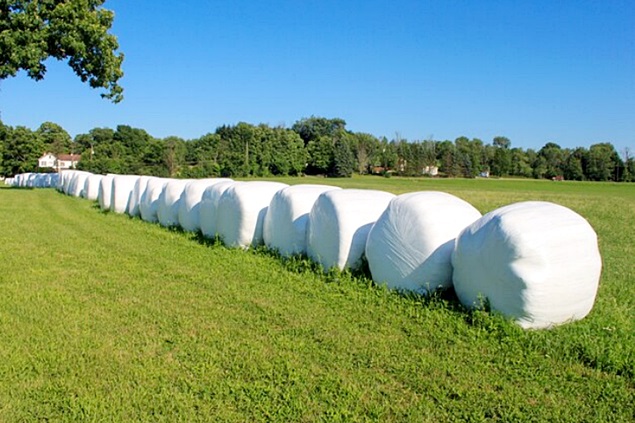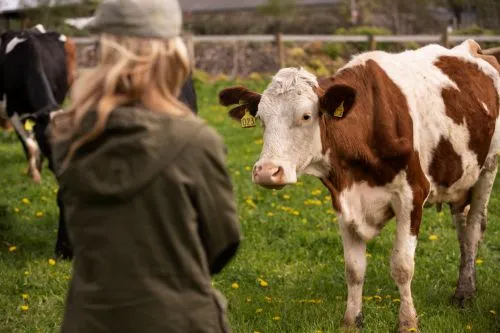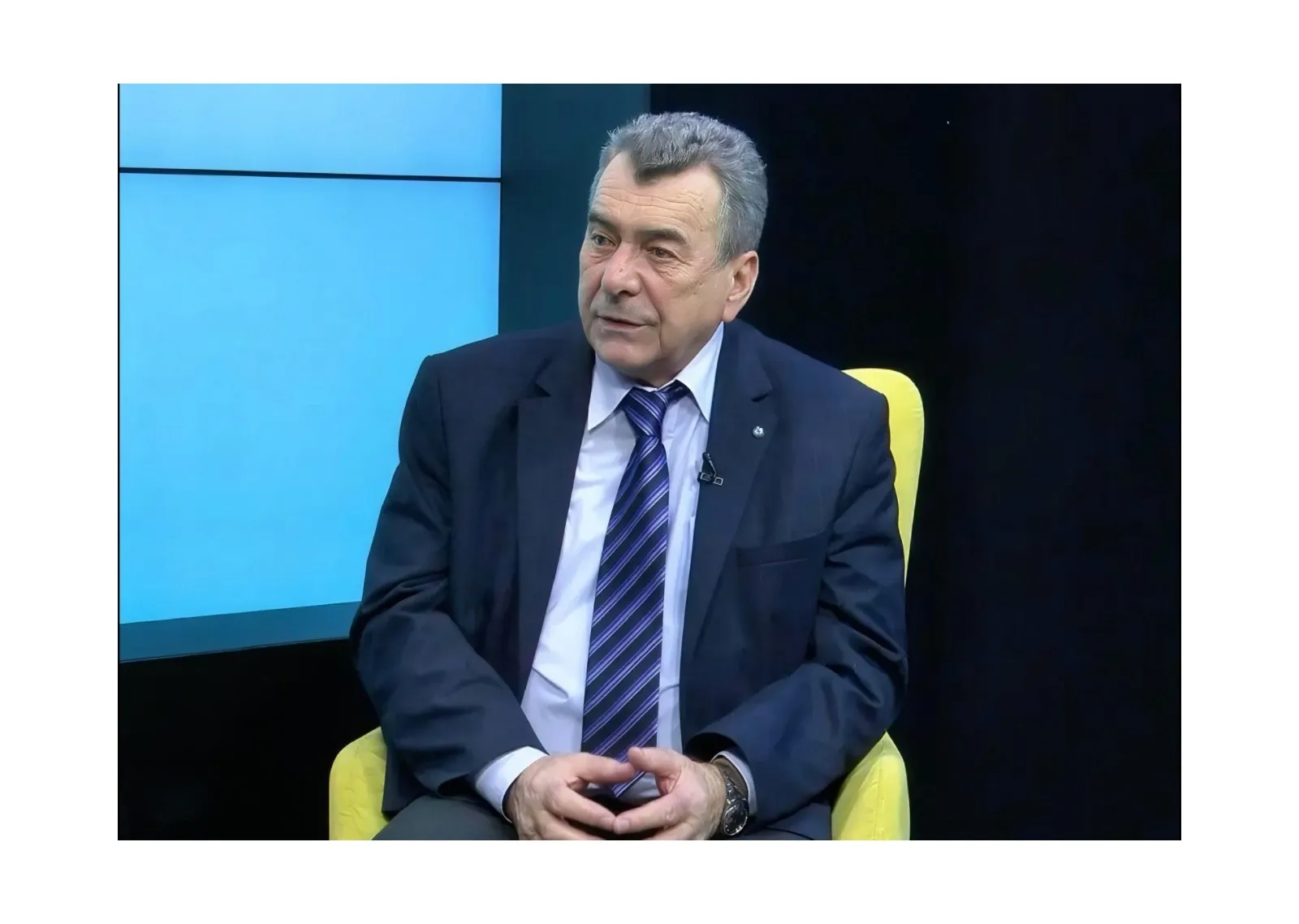1370

"A kind of regeneration came to us," says the founder of Maple Hill Creamery, as quoted by DairyReporter, talking about organic dairy products made from grass-fed cows.
The story of a pioneer
"When we started doing this, regenerative was not yet a word," said Tim Joseph to DairyReporter, discussing the challenging early years of milk production with 135 farms, reaping the benefits of regenerative farming practices and taking the American consumer along for the journey.
Dubbed the original 100% grass-fed organic dairy producer in America, Maple Hill Creamery remains the only dairy producer in the USA that combines all three definitions today. Founder Tim Joseph himself is not what you would call a conventional farmer, for reasons beyond the milk his dairy produces.
"I started working for a friend in the world of managing oral surgery practice," he said. "Back then, I was in digital imaging – when you get X-rays, they put a small digital sensor in your mouth; I was the product manager for that at Kodak Dental at that time." So, what led him to milk production?
"I dreamt of a farm, so I drove all over the state of New York to find a suitable area. For the price of a house where we lived near Hudson Valley, we bought a 250-acre farm with barns. We had two boys at that time, and it eventually turned into five kids, and we just wanted to raise them in that environment."
Maple Hill Creamery started as a conventional dairy producer, feeding cows with seasonal grazing. But the higher price paid for organic milk convinced the team that a transition was viable. "We went organic because the price of conventional milk was at one of these very low points. We were so close to managing organically that it made no sense not to do it and get a higher price.
"But, since the price of milk for conventional was so low, it was a very bad time for the transition, and then having to use organic inputs while receiving such a low price made it even harder. That's what forced us to take the next step, and we were organic and grass-fed at the same time.
Health benefits
Although they were told they couldn't produce enough milk to survive by feeding the cows 'just grass,' Joseph said the health benefits for the herd were evident from the beginning. "We were a herd of 60 cows, and you'd have the vet come every month for a herd health visit – which was really more of a 'sick' visit because out of 50-60 cows, you always had five or six that had a chronic metabolic problem or a foot issue. Foot and leg problems are the most common reasons a dairy cow leaves a herd.
And that was probably the most impactful thing health-wise. Our cows' hooves became so hard – they were like rocks – from not feeding them corn silage anymore that the hoof-trimming machine just said, 'You don't need me anymore.' So, grass-feeding eliminated a major problem that all dairy farmers generally face. And that was quite powerful. Grazing is what cows were meant to do, really."
Over the years, Maple Hill Creamery has grown from a single 65-head farm to 135 farms, each around 50 heads – "quite small in the grand scheme of dairy," as Joseph said, but a model proving resilient in ensuring stable prices for farmers.
"After we started bringing in more farms, I realized that organically grass-fed is, hopefully, a more stable market for what I would call family-sized farms," he explained. "I'm not bashing larger farms – it's just a different scale from most of modern dairy."
A way of life
And it's a lifestyle many people consider important in rural America. "But I think what happened with organic, although it's probably a better opportunity than conventional, especially for small to medium-sized dairy factories, organic also started to commercialize.
"We see bigger inputs and larger farms, growing larger and larger across the country. It might not meet the expectations of what an organic consumer thinks they're buying, but it is. And it's very difficult for a 50 or 100-cow farm to compete."
At the same time, this kind of "management-focused" farming has attracted more young farmers to agriculture, Joseph argued, not just in dairy production. "With a grass-fed farm, no day is the same. It's hot, it's cold, it's wet, it's dry; the grass grows, or it doesn't.
"It's really a thoughtful person's farm, more than anything, and that's not for everyone. It's not that conventional farming isn't management-focused, but the fact that you have the option to feed a teaspoon of cover crops for a lot of sins, right?
He said the average age of Maple Hill farmers is "probably still in their mid-40s, which, compared to agriculture in general and dairy, is a younger average age by 20 years." "My biggest fear is that we get a definition of regenerative that is pleasing and easy."
A necessity
In addition to being grass-fed and organic, Maple Hill also adheres to regenerative farming practices. Initially, becoming regenerative was done out of necessity, as Joseph explained: "When we started doing this, regenerative was not yet a word. I always maintain that Maple Hill farmers were regenerative before regeneration was a thing because to do this type of farming, you have to be regenerative.
"But we were somewhat alone in it, so we had a baseline culture that was bottom-up, and we figured out – how to graze differently, how to manage these cows.
"If you want to produce grass-fed milk consistently for many years, you have to do it regeneratively – constantly improving the soil and grass, taking that solar energy and making the soil and cows work together so that you're leaving more nutrients in the soil than when you started."
"For most Maple Hill farmers who join us, that act of regeneration takes from 3 to 5 years. From leaving the old system, using the knowledge we now have about how to graze and how to manage cows, regeneration begins, and then, ultimately, in years three to five, that wheel turns. Your soil can hold more water, your grass becomes richer in sugar, which helps cows produce more milk.
"We didn't know we were doing that at that time, but we had to do it to survive. We couldn't afford to use those organic inputs, so regeneration sort of came to us."
A dissatisfaction
However, as the debate over what constitutes regeneration rages on more than ever today, Joseph said he has a dissatisfaction with how undefined this type of agriculture remains. "Regenerative means 50 different things to 50 different people, especially in the business world.
"It slightly annoys me that everyone is 'regenerative' when I know very well what it actually means. Regeneration through spreadsheets is not what we do. It's the real deal. And I hope we figure out how to communicate better what it really means so that it's more meaningful."
Asked to elaborate, he said that much of what's happening now is "redefining what's already being done versus truly making the big changes that need to happen for this to be the case." "On a farmer level, to do regeneration, farmers. jeopardize their livelihoods," he said.
"I can't make a blanket statement, but I've done this long enough, and I've seen enough to know in my heart that it's true. Especially in the plant-based movement. I just feel there's a lot of greenwashing, and there are a lot of consumers who think they're buying a product that's better for them or better for the planet, when to be truly honest about it, plant-based agriculture is the way we're going there. Those are crops, right? What's different in taking that plant and grinding it and putting it in a box today, different from yesterday?
"Regenerative washing is a big issue, and I really don't know how to solve it. We're happy to say we're regenerative, and that's the truth. Grass-fed, especially for dairy and beef, resonates with people, and maybe part of that is due to 'regenerative.' But I fear that regeneration could go in a direction that is not congruent with how we do things and what we believe it means.
Maple Hill's founder believes that creating too prescriptive a definition would be "the worst thing you can do because everyone's context is so different." "My biggest fear is that we get a definition of regenerative that is pleasing and easy to adopt for the entire industry because then it will be completely meaningless if it's not already," he explained, adding that any definition should be tied to outcomes.
Payment for progress
In April 2023, Maple Hill Creamery received a $20 million grant from the USDA Partnerships for Climate-Smart Commodities program to expand markets for organic, sustainable, regenerative, grass-fed dairy products. "The grant intersected with so many things we've always wanted to do but with our weak resources as a small company, we just couldn't," Joseph said.
"We always wanted to incentivize our farmers for the positive results they create, but we didn't have the funding – we pay one of the highest milk prices in the USA, for instance. We call it Pay for Progress, and now we've managed to put a little fuel on the fire and encourage people to improve their pasture cover, which brings a whole host of other positive aspects. Improving your pasture scores over time improves your financial situation forever."
The grant will also allow the dairy factory to improve the visibility of its organic, grass-fed, and regenerative certifications. Asked if he thinks consumers understand "regenerative," Joseph said, "I don't think most of them even know the word, and certainly, they don't know what it means.
"We're all in this industry together, and we talk about it all the time, but for the most part, my experience with consumers and a lot of research I've seen is that it's still early days for the word 'regenerative.'
That's the point behind the Climate-Smart grant – to make progress on the ground but also in the marketplace. And maybe one day, people will start to understand what it means and gravitate towards those products.
"Our main goal is grass-fed and organic – it just so happens that we're regenerative too, so that's our consumer, and they're along for the 'regenerative' journey, whether they know it or not! We were a pioneer there, and I think consumers know we're special."





